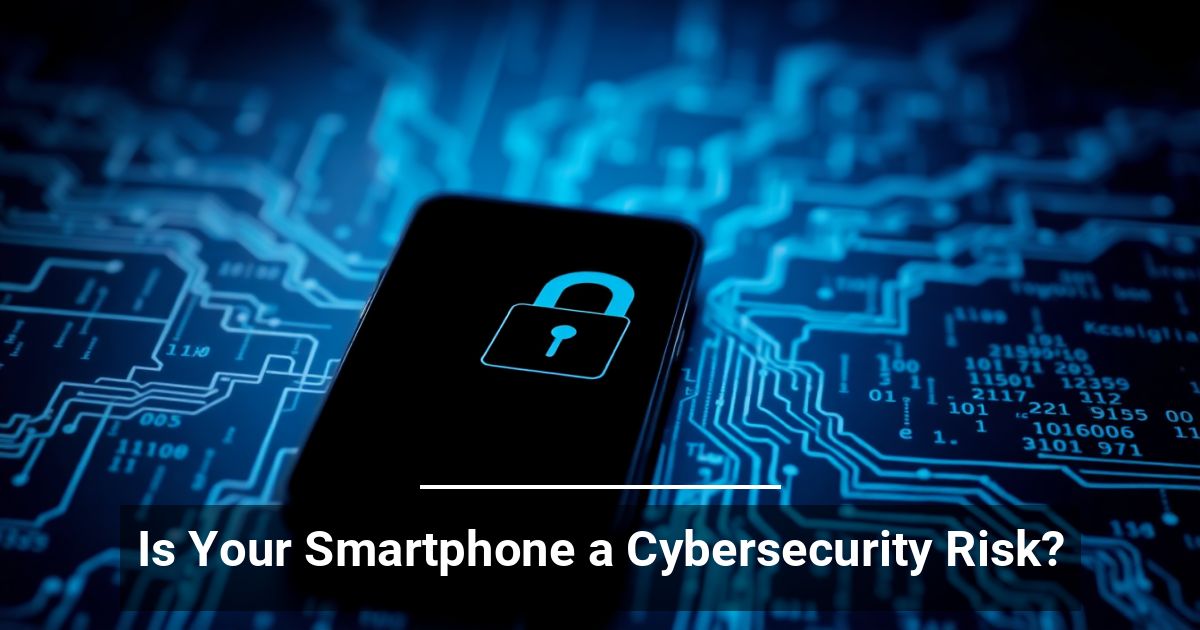 Is your smartphone a cybersecurity risk for your business? It’s easy to overlook how much confidential information lives on your device.
Is your smartphone a cybersecurity risk for your business? It’s easy to overlook how much confidential information lives on your device.
Hackers know this, and they’re targeting mobile phones more than ever. Keep reading to learn more.
Everyday Reliance, Everyday Risk: The Smartphone Dilemma
Our phones are with us all the time, both at home and on the go. They help us stay connected, manage tasks, and access data instantly.
For business owners, they’re even more critical. Everything happens through these small devices, from checking emails to handling payments.
Unfortunately, the risks to personal identity and cybersecurity continue to escalate. Let’s go over some major incidents so you can better understand the gravity of the situation:
- AT&T breach: Cybercriminals extracted the metadata texts and calls from nearly all of AT&T’s cellular customers. The content of the communication remained secure, but it has raised privacy concerns.
- National Public Data breach: Hackers leaked the personal data of almost 3 billion individuals on the dark web, which included names, addresses, and Social Security numbers.
What Are the Emerging Dangers for Mobile Devices?
Is your smartphone a cybersecurity risk? Watch out for these common threats:
- Mobile malware: Dubious websites, apps, and links can inject malicious software into your device and compromise sensitive data.
- Phishing attacks: Fake emails and messages trick you into revealing personal information.
- Public Wi-Fi risks: Unsecured public networks are a playground for hackers.
- SIM swapping: Sophisticated scams can fool providers into transferring your number, giving hackers access to accounts that require phone verification.
- IoT vulnerabilities: Smartwatches, fitness trackers, smart speakers, and other devices connected to your phone create additional entry points for attackers.
Keeping Your Mobile Device and Data Safe
The last thing you want is a phone data breach that ruins your establishment’s reputation. Consider these simple but effective tips:
- Strengthen login credentials: Create strong, unique passwords for every account, and use a password manager to track them easily. Enable two-factor authentication whenever possible, too.
- Back up your data: Use cloud storage or external drives so you don’t lose everything when something happens.
- Update your software often: Outdated systems can leave your business vulnerable. Install app and operating system updates promptly to patch security flaws.
- Think before you click: It’s always wise to pause and verify links or attachments in emails, especially when they seem unexpected or too good to be true.
- Improve app security: Only install applications from trusted sources and limit app permissions. The permissions you grant should align with the app’s purpose.
- Avoid connecting to public networks: Use a reliable VPN to protect your personal information online. Never use public Wi-Fi for sensitive tasks like banking or shopping.
Is your smartphone a cybersecurity risk? These devices boost business productivity by enabling instant communication, remote work, and on-the-go access to tools, but they also carry risks. Familiarize yourself with the latest smartphone vulnerabilities, stay on top of operating system updates, and take other proactive steps.







